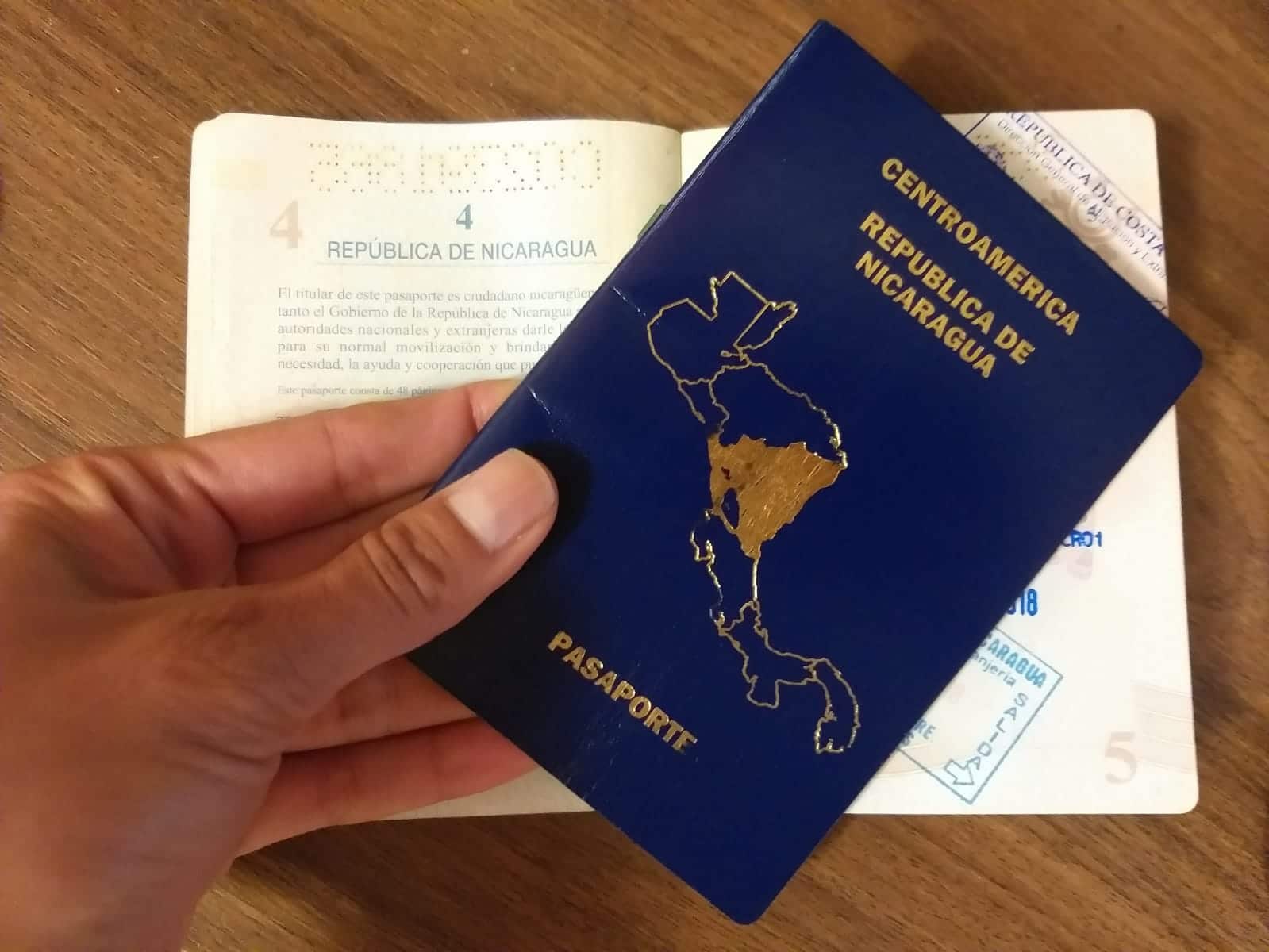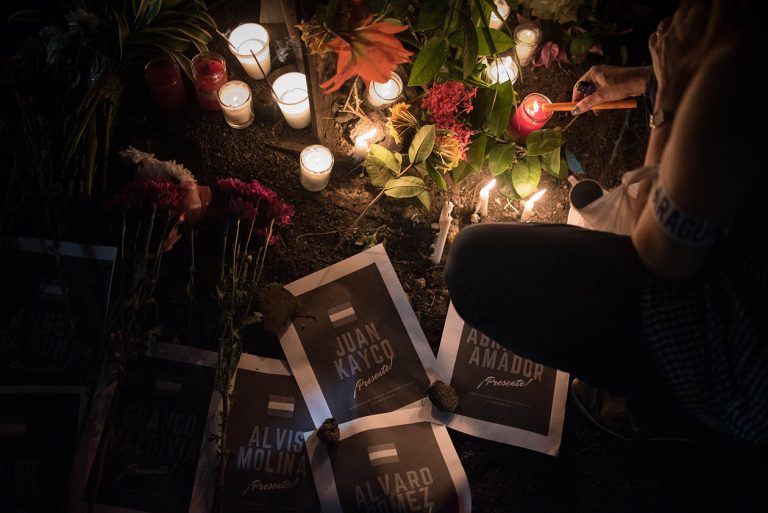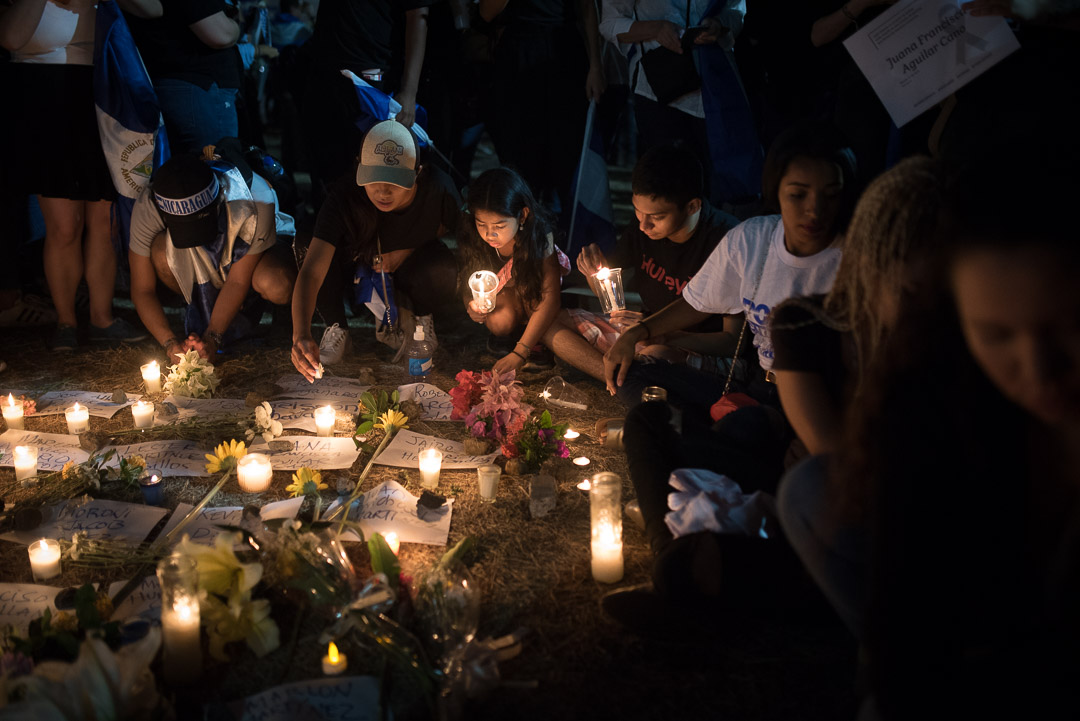
Nicaragua: Public Employees Hindered from Traveling to USA

PUBLICIDAD 1M
PUBLICIDAD 4D
PUBLICIDAD 5D
One week after the unprecedented protests against Ortega, tens of thousands remain in the streets demanding an end to the regime.

One week after the unprecedented protests against Ortega
One of the topics that should be discussed in a possible dialogue to resolve the profound crisis affecting Nicaragua is the “orderly exit” of President Daniel Ortega and Vice-President Rosario Murillo, and a way to move up the election date. The latter, in addition, would require a change in the current electoral authorities, agreed constitutional expert Gabriel Alvarez and economist Jose Luis Medal in an interview on the television program “Esta Noche” [“Tonight”].
“The underlying issue is the lack of democracy and of the Rule of Law,” Alvarez stated. “We’ve had 11 years of electoral frauds, a total hollowing out of democratic institutions like the National Assembly. That’s why the country just exploded in Comandante Ortega’s face,” added the analyst.
Alvarez blamed the big business circles in the country for this institutional deterioration. The Superior Council of Private Enterprise (COSEP) has been a willing accomplice to this undemocratic model. They should now assume the political costs of their pseudo-consensus (with the government).
President Ortega has called for an open dialogue to find a solution to the crisis. The Nicaraguan Episcopal Council has accepted a role as mediator in the process and has invited well-known figures of civil society – unions, business leaders, students and other social protagonists – to form part of the negotiations with the Government. This comes following a week of protests and brutal repression on the part of the regime, leaving at least 32 dead according to figures from the Nicaraguan Human Rights Center (CENIDH).
The outcry in the streets, however, is that there can’t be any dialogue until the crimes committed during the demonstrations are investigated. The repression exercised during these days of protests led to one of the bloodiest episodes in the recent history of Nicaragua. The demonstrators also demand that the guilty be brought to justice and sentenced, and argue that the massacre are a sufficient cause to disqualify Ortega as president and Murillo as vice president. Nonetheless, all do agree that their exit from power should be peaceful.

Vigil in Managua for the victims of the repression. Foto: Carlos Herrera /Confidencial
“Without democracy, there’s no development,” said economist Jose Luis Medal. “The designs of a family dynasty obsessed with power led to this catastrophe. What’s under discussion now is how to restore democracy. There should be involvement from all the citizens,” he added.
Medal also criticized the role of the high echelons of business leaders. “COSEP has played along with a dictatorial system. They need to assume their historic responsibility and promote a change in power that can’t wait another three years,” he said.
The economist criticized the official discourse which maintains that the relationship between the government and the business leaders is based on the goal of economic growth. “It’s a fallacy that there’s an economic miracle. The economy is fragile, it wouldn’t resist a flight of capital or of investments. Either the institutional issue is resolved or the economy collapses,” warned Medal.
For his part, Alvarez declared that the “bloodbath” caused by the government’s repression of the demonstrators “can’t be left unpunished” and demanded an investigation. “There was a police massacre here. The supreme chief of police is President Daniel Ortega. They (the police and Ortega) hold responsibility.”
Medal made reference to the role of the Army during the crisis. President Ortega ordered the soldiers “to protect” the seats of public institutions in several cities of the country, including the capital, as a measure aimed at intimidating the demonstrators. “The Army owes its loyalty to the Constitution and the country, not to a dictator,” he said. “There are two alternatives here: either there’s an orderly change, or there’s an apocalyptic change. But there must be deep changes, so that there isn’t another explosion. Aminta Granera, the chief of police, has been stained with blood and should stand trial,” Medal concluded.
PUBLICIDAD 3M
PUBLICIDAD 3D